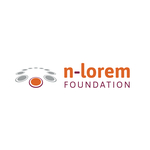- Research, supported by the Wolverine Foundation and published in JCI Insights, characterizes a mutation in MAPK8IP3 that disrupts dopamine signaling
SAN DIEGO–(BUSINESS WIRE)–#ASO—n-Lorem, a nonprofit foundation, announced today the publication of new research characterizing a nano-rare mutation in a gene that is pivotal to normal cell signaling and cellular homeostasis. The mitogen-activated protein kinase 8 interacting protein 3 (MAPK8IP3) gene encodes for c-Jun N-terminal kinase-interacting (JNK-interacting) protein 3 (JIP3). Mutations in the MAPK8IP3 gene have been linked to severe neurodevelopmental disorders, however, the mechanisms of JIP3 underlying these deleterious effects were poorly understood. In this publication, n-Lorem scientists identified several significant roles JIP3 could play in the body, characterized a mutation in MAPK8IP3 and identified a path forward to use antisense oligonucleotide (ASO) medicines to address mutations in the MAPK8IP3 gene. The study, authored by n-Lorem scientist Wei Zhang, et al was published today in JCI Insights (JCI Insight. 2025;10(8):e187199).
“The work described in this manuscript is exemplary of some of the challenges in defining a therapeutic strategy for nano-rare patients who have de novo mutations in genes,” said Stanley Crooke, M.D., Ph.D., Chairman, Founder and CEO of n-Lorem. “As is often the case, the nature of the MAPK8IP3 mutation, whether loss-of-function or toxic gain-of-function, was not clearly proven before we started this. Since ASOs can be designed to carry out a variety of actions, we must know at the onset of the program if we need to alter mRNA splicing or increase or decrease protein expression. Additionally, it is often unclear what the proximal molecular events are. This information is essential to know if we are likely to correct the phenotype and potentially improve the condition.”
“At The Wolverine Foundation, our focus is to turn cutting-edge science into tangible hope for the children affected by MAPK8IP3-related neurodevelopmental disorders,” said Amy McCooe, Executive Director of The Wolverine Foundation. “The study published in JCI Insight points to antisense oligonucleotides as a promising avenue worth pursuing. Although much remains to be learned about the therapeutic potential of this approach, we are encouraged by these findings and grateful to n-Lorem’s scientists for moving us a meaningful step forward.”
The study, titled “A toxin gain-of-function variant in MAPK8IP3 provides insights into JIP3 cellular roles,” investigated a patient with a missense mutation in the MAPK8IP3 gene (c. 1714 C > T, Arg578Cys) linked to dystonia, gross motor dysfunction and developmental delays. Aimed at uncovering the molecular mechanisms driving the cytotoxicity of MAPK8IP3 mutations the research sheds new light on the cellular functions of JIP3 and its role in neurodevelopmental disorders. The study revealed, for the first time, that the Arg578Cys mutation in JIP3 was shown to trigger cellular abnormalities that culminate in cell death and neurodegenerative disease in patients with this mutation. Funded by the Wolverine Foundation, the study also revealed that this toxic gain-of-function variant disrupts JIP3’s molecular interactions, selectively impairing dopamine receptor 1 signaling while sparing dopamine receptor 2 pathways. Since disruptions in dopamine signaling are closely linked to movement disorders like Parkinson’s disease, these findings may explain the motor symptoms observed in the patient.
“The significance of JIP3 has been unfolding over the last few years, but a comprehensive understanding of its functioning has been incomplete,” Crooke said. “This research has offered us new insight into the role of JIP3 and how mutations in the protein can contribute to neurodegenerative disorders. This work could not have been completed without support from the Wolverine Foundation, and we want to thank them for their confidence and patience as we embarked on this work together.”
The Wolverine Foundation is dedicated to advancing research and discover novel therapeutic approaches to treat the neuro-developmental disease caused by genetic variations in the gene MAPK8IP3. The organization investigates disease mechanisms and encourages scientific collaboration between academic research, drug discovery and clinical development.
About n-Lorem
n-Lorem Foundation is a non-profit organization established to apply the efficiency, versatility and specificity of antisense technology to charitably provide experimental antisense oligonucleotide (ASO) medicines to treat nano-rare patients diagnosed with diseases that are the result of a single genetic defect unique to only one or very few individuals. Nano-rare patients describe a very small group of patients (1-30 worldwide) who, because of their small numbers, have few if any treatment options. n-Lorem Foundation was created to provide hope to these nano-rare patients by developing individualized ASO medicines, which are short strands of modified DNA that can specifically target the transcripts of a defective gene to correct the abnormality. The advantage of experimental ASO medicines is that they can be developed rapidly, inexpensively and are highly specific. To date, n-Lorem received over 330 applications for treatment with more than 160 nano-rare patients approved and more than 25 patients on active treatment. n-Lorem was founded by Stanley T. Crooke, M.D., Ph.D., former chairman and CEO of Ionis Pharmaceuticals, who founded Ionis Pharmaceuticals in 1989 and, through his vision and leadership, established the company as the leader in RNA-targeted therapeutics. Follow us on Twitter, Facebook, LinkedIn and YouTube.
To learn more about n-Lorem’s mission at www.nlorem.org, and please consider giving to n-Lorem to bring hope, possibility and treatment options to these patients and families in need.
Contacts
n-Lorem Contact:
Amy Williford, Ph.D.
Executive Director of Communications
[email protected]



